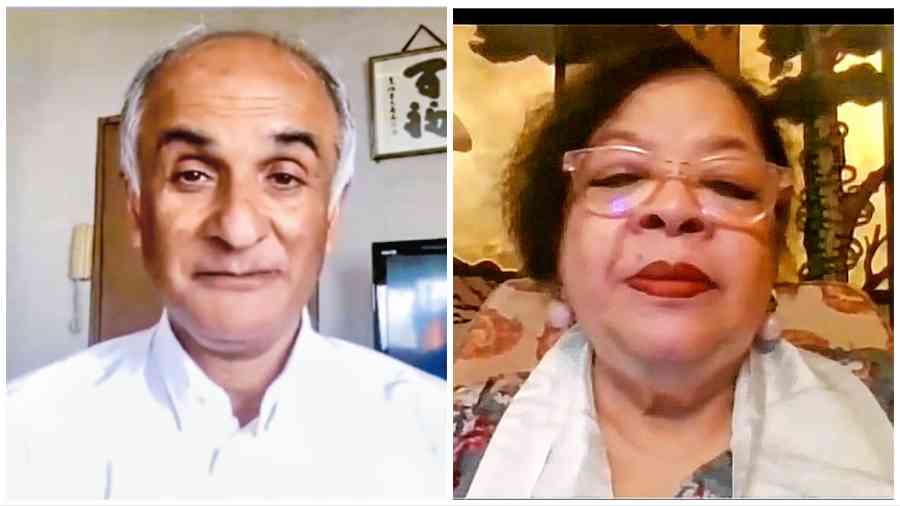Celebrated travel writer Pico Iyer, who lives between Japan and California, made a rare appearance this week at the virtual meet of The Bengal Club's Book Club. He addressed the members, saying: “I’m not a Christian or a Buddhist or a Muslim, but I find myself deeply moved by the tiny candles in the Church of the Holy Sepulchre in Jerusalem, by the unstinting care and realism of His Holiness, the Dalai Lama, by the call to prayer and the mosques and shrines I have been lucky to visit in Damascus and Mashhad.”
Explaining the context to Prof. Julie Banerjee Mehta, the curator and anchor of the Book Club, Iyer said: “The heart of the three religious traditions you mention seems to me to be kindness, and care for others. The Bodhisattva gives up the prospect of Nirvana to help those who haven’t attained it yet; the Catholic monks I know tirelessly tend to others, as Mother Teresa and her sisters did on the streets of Calcutta; the Sufis remind us that there’s no division between you and me in the love-affair one enjoys with the divine.”
Continuing he said, “This book did very much arise out of the pandemic, and out of the fact that I was spending most of lockdown right by the side of my mother, who was entering her final seasons of life. I had flown back from our rented flat in suburban Japan to be with her through the next fifteen months. What inner resources had I gathered to bring to this extended goodbye?” His mother Nandini Iyer, had been a Professor at Oxford University, as had his father Raghavan Iyer.
The Book Club, now in its 42nd month, was discussing Iyer’s newest book The Half Known Life: In Search of Paradise. A popular monthly meeting, enthusiastically supported by members, international scholars, and members of the reading public of Calcutta, brought multiple perspectives to bear on the author’s looking for stillness in a stormy world, by journeying within, even as he visited embattled places — from North Korea, Leh, Kashmir, and Iran to Australia, Sri Lanka, Iran, and Varanasi.
In her introduction, Prof. Julie had explained: “Pico has written fourteen books as a global soul with possibly the most frequent flyer miles. If you are looking for a tip on which is the best restaurant or the sassiest nightclub, then you are looking in the wrong place. Pico Iyer is dubbed a travel writer, but he is your quintessential philosopher who is accessible, poetic and real. And he is empathetic too, and understands the human condition acutely.”
In the course of the discussion on the book, Chaitali Moitra spoke about Iyer’s clever juxtaposition of the philosophy of the living and the dead in places such as Varanasi where death and rebirth are celebrated at the same time. Taking it up from her Paramita Mukherjee Mullick mentioned the significance of the quotation at the beginning of the book, by Henry David Thoreau that ‘with all your science can you tell me how it is — and whence it is, that light comes into the soul.’ This question runs through much of Iyer’s exploration. Moving on Harish Mehta remarked that Iyer takes his readers to the heart of his book which is the ‘half-known life,’ because we can never really know all there is to know. The reason for the difficulty in knowing is because many of us, he says, “choose to see places through screens,” and in our search for answers we find more questions. Iyer calls this ‘a state of answerlessness’. Adding, Anusuya Pal underlined the lesson that the Ladakhi culture teaches us through Iyer’s eyes, that the importance of interdependence is one of the foremost teachings of Buddhism.
Text by the club
